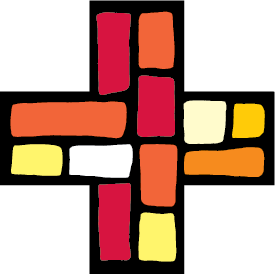Rochester, MN UCC - "A Savior Not Born of Men"
The last few months I’ve been reading the Chronicles of Narnia to my daughter Ruth at bedtime. There is a moment in the final book of the series, “The Last Battle,” when the characters are describing the magic of a particular stable. When you enter this small stable, the inside becomes an entirely different world; you’re standing outside with a blue sky above you and a whole world all around you. Somehow the inside of the stable is bigger than the outside of the stable. On hearing this comment, one of the characters, Lucy, says, “Yes, in our world too, a stable once held something inside it that was bigger than our whole world.”
We tell the story of this stable each year on Christmas Eve; how in the time of Caesar Augustus the very Word of God was born as a human infant and laid in a manger in Bethlehem. The Word who was in the beginning with God, and was God, and through whom all things were created, including that stable in Bethlehem, chose to be born as a human child inside that very stable.
Apart from it being a neat little paradox, why do we tell this strange story every year? Why do we believe that it is good news? In this season, as the sun sets earlier and earlier, we are especially aware of the darkness in the world. In this season we are reminded of the darkness of our human nature by the violence that surrounds Bethlehem at this very moment. In a world where darkness feels ubiquitous, trusting that the source of all light and life, love itself, chooses to be with us is a revolutionary thing. Knowing that God chooses to be with and for humanity, chooses to journey with us and share our common lot is a comfort beyond any other. It is the source of our hope, our peace, our joy, and our love. What happened in that stable has given us reason to trust that light ever shines in our darkness and that the love which triumphs over all has chosen to dwell among us. May we cherish and celebrate that good news this Christmas.
- Rev. Andrew Greenhaw
